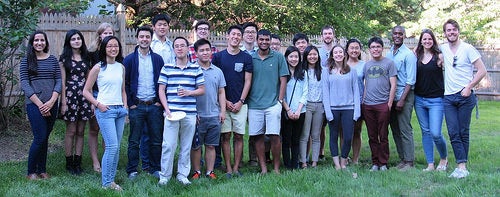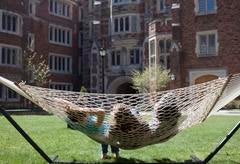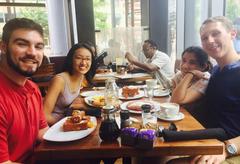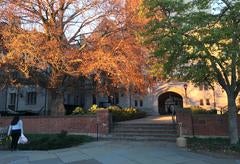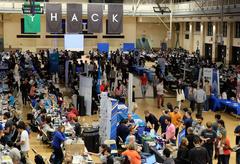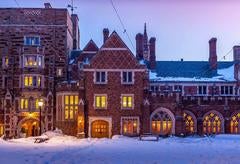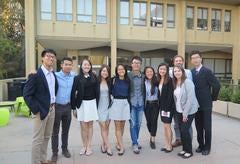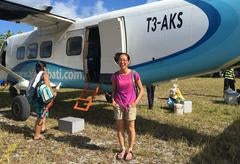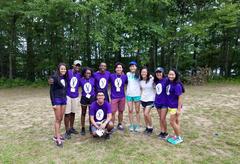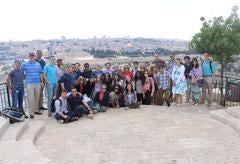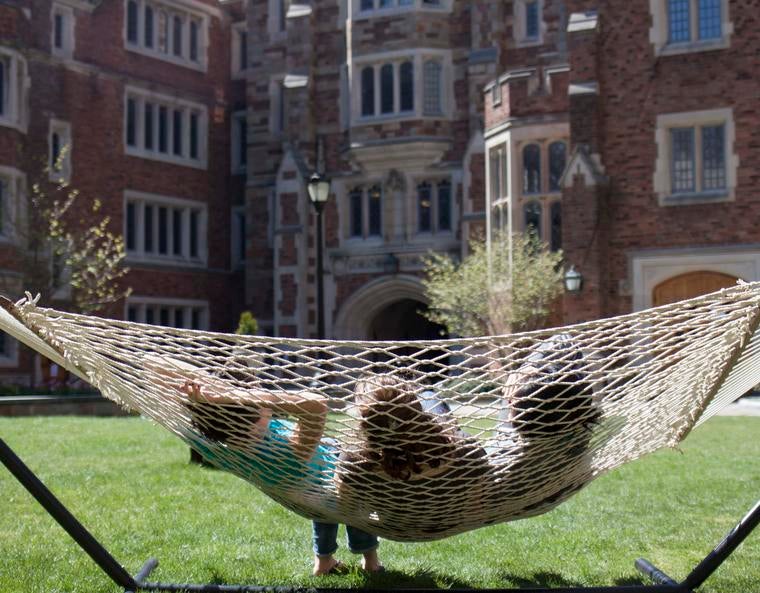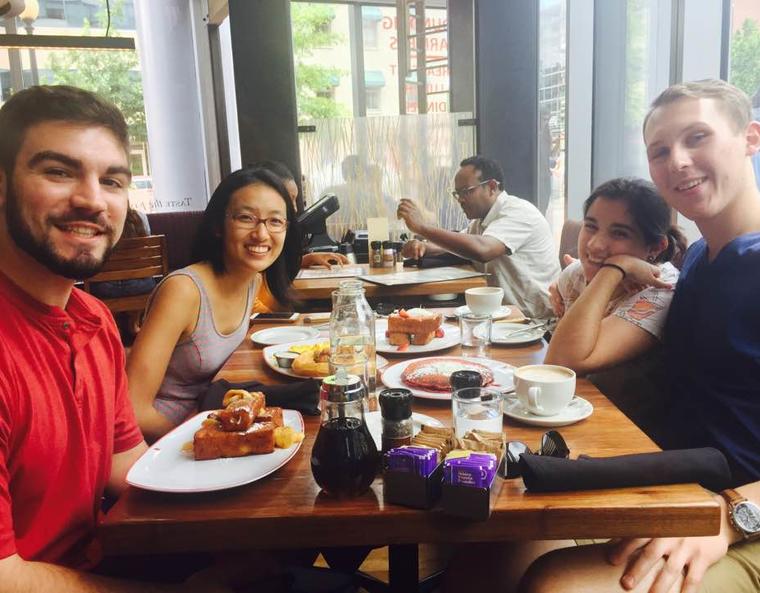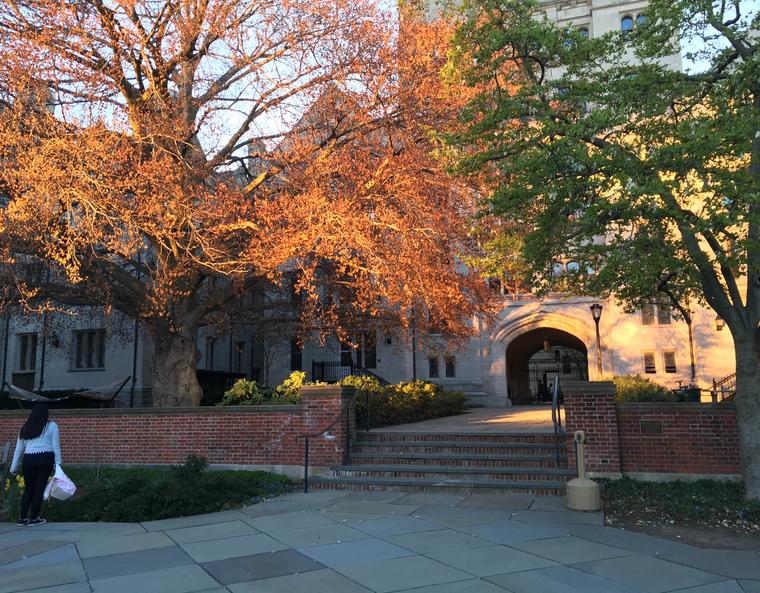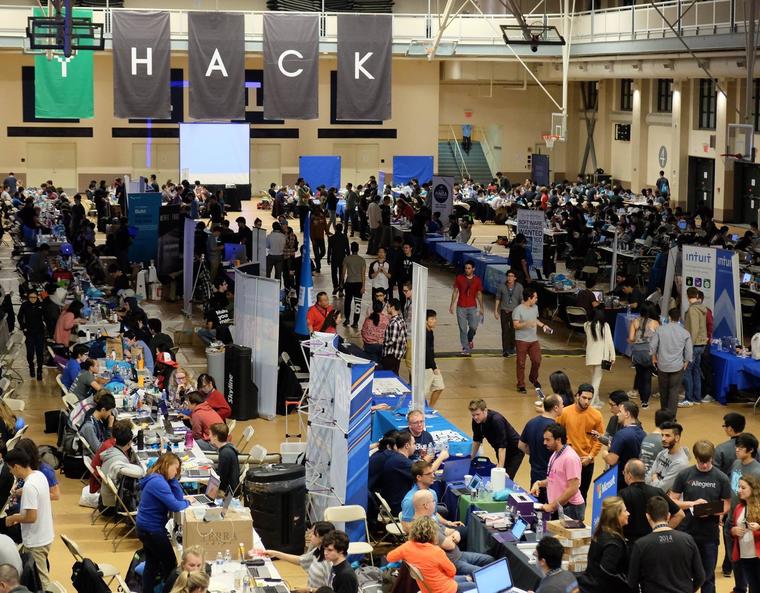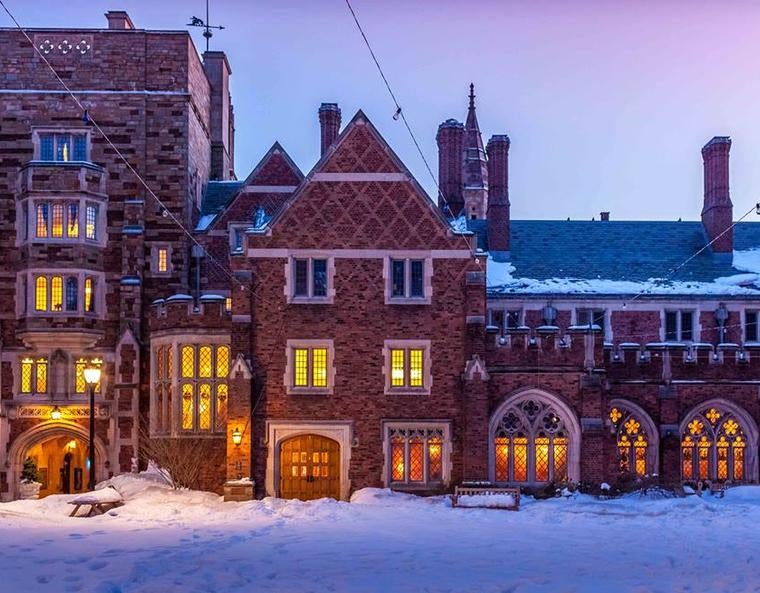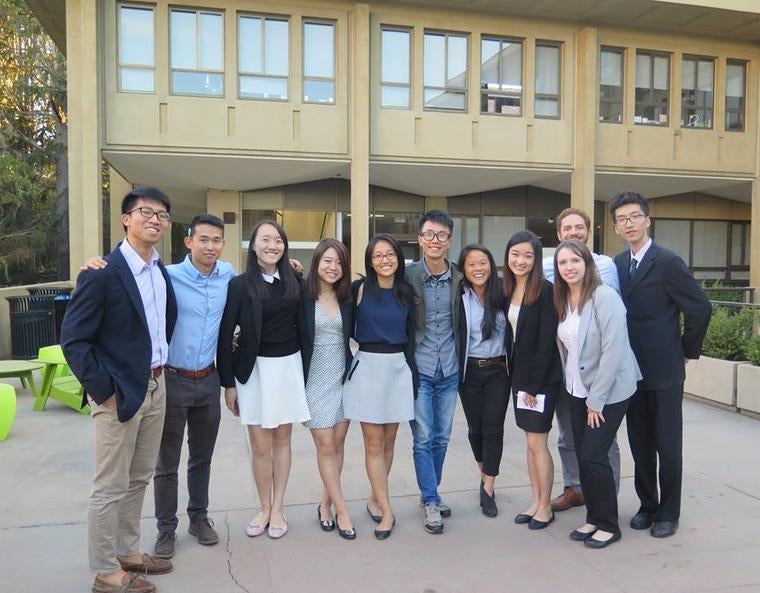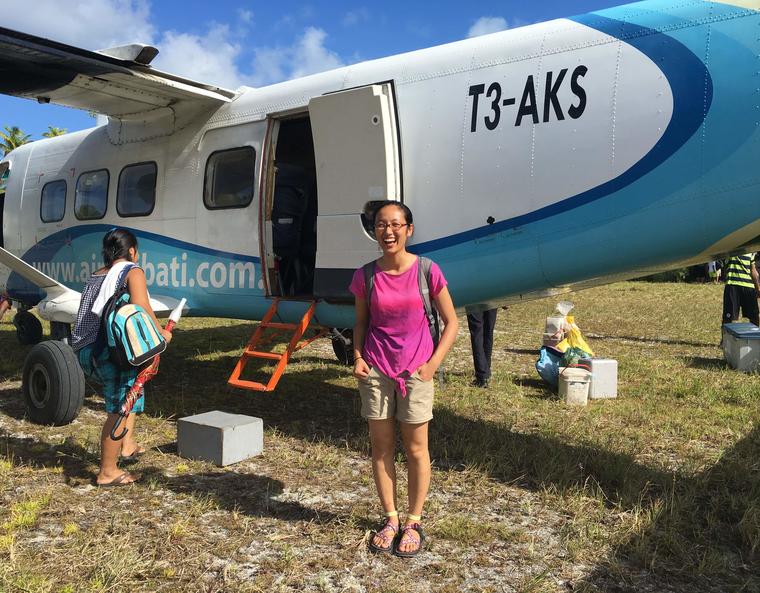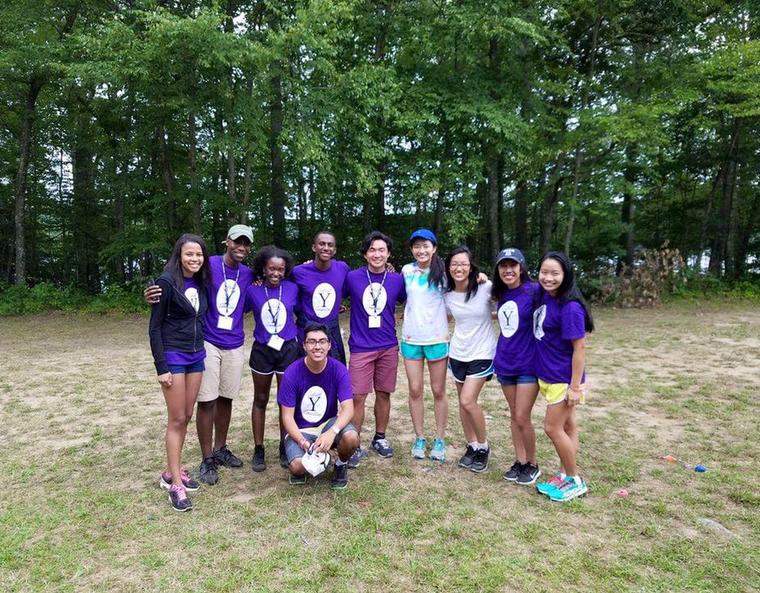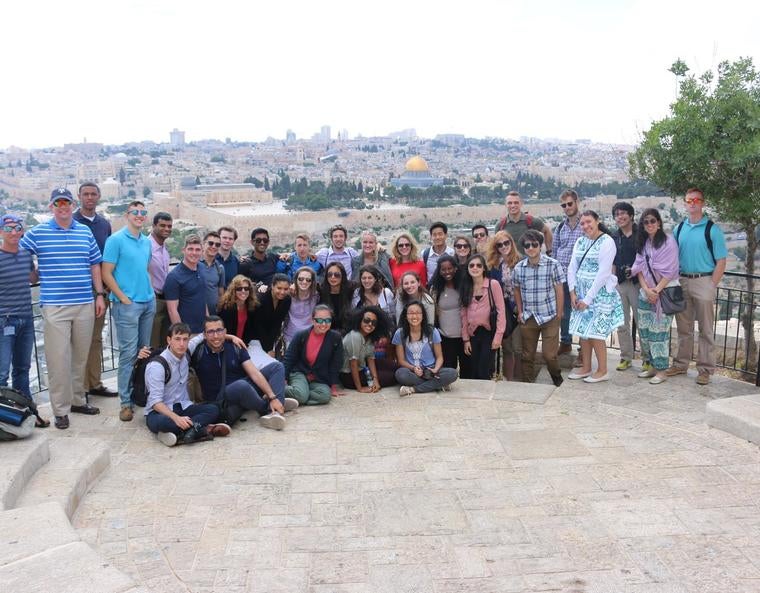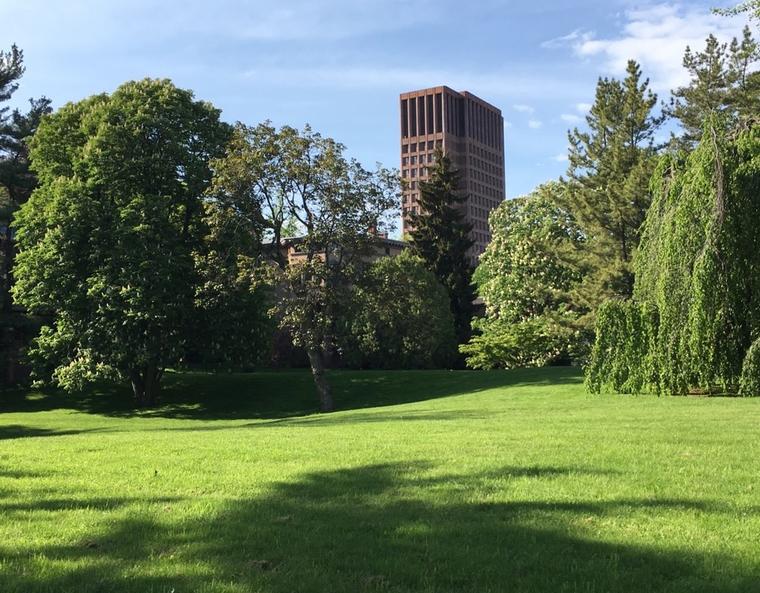
New Haven in the summer has a very different flavor than New Haven during the school year. Yalies are scattered all over the world, each on their own adventure. There is, however, a sizeable population of students who stay in the Elm City over these beautiful summer months. In addition, the campus is popping with students who take summer session classes (some preparing to go abroad to study languages in France, Russia, Morocco, etc.), visitors from all over the world, Yale Young Global Scholars, and so many others.
Among my friends who are here, some conducts research at the Yale School of Medicine, one interns with a new nonprofit audit organization ImpactMatters incubated out of Innovations for Poverty Action, and two works on their own startups as part of the Yale Entrepreneurial Institute Summer Fellowship. We’ve gotten a chance to explore the city with all the time in the world, wandering through the trails of East Rock Park and finding hidden nooks on Yale’s campus. We cook together, check out performances at the International Festival of Arts and Ideas, go see Finding Dory, and bask in the summer sun at the garden near the Leitner Observatory.
Over the course of the last month or so, I feel like I’ve discovered a new Yale, a layer populated with graduate students, professors, and staff that I’ve gotten to know on a deeper level since most of the undergrads are away for the three month hiatus. As part of the Summer Research Opportunities program with the economics department and the Bouchet Fellowship, I am working closely with two professors on a research project based on surveys conducted in Tamil Nadu, India and developing my own research project on climate migration in the South Pacific.
The first project investigates the effects of limited groundwater use on farmers’ welfare. Sarah, a rising senior at Yale, and I comb through the data on pumps and electricity and crops to get a better look at the picture the numbers present. Like wiping a foggy mirror, we clarify the fuzzy picture bit by bit, asking questions and discussing implications of the findings with our professors.
The second project stems from a Bloomberg article I read three or four years back on a “drowning” Kiribati. With guidance from many mentors, I am diving into the challenge of rising sea levels that small island nations face and asking how people will respond to increased severity of flooding and storms. If they move, when and to where will the people of small island nations move?
Through these experiences, I’ve come to know the economics department very well. I’ve met graduate students at a barbecue and heard about exciting research at lunchtime talks. I’ve already learned so much about the research process in a month’s time.
My daily commute consists of a leisurely stroll up Hillhouse Avenue, termed the most beautiful street in America by Mark Twain. The street reminds me of Sunset Boulevard back home in Houston, where the trees are so thick that they form a canopy overhead. Calmness permeates the entire area, from the houses lining the street to the people walking on its sidewalks. Nevertheless, I can sense the excitement of ideas and thinking buzzing just below the surface.
